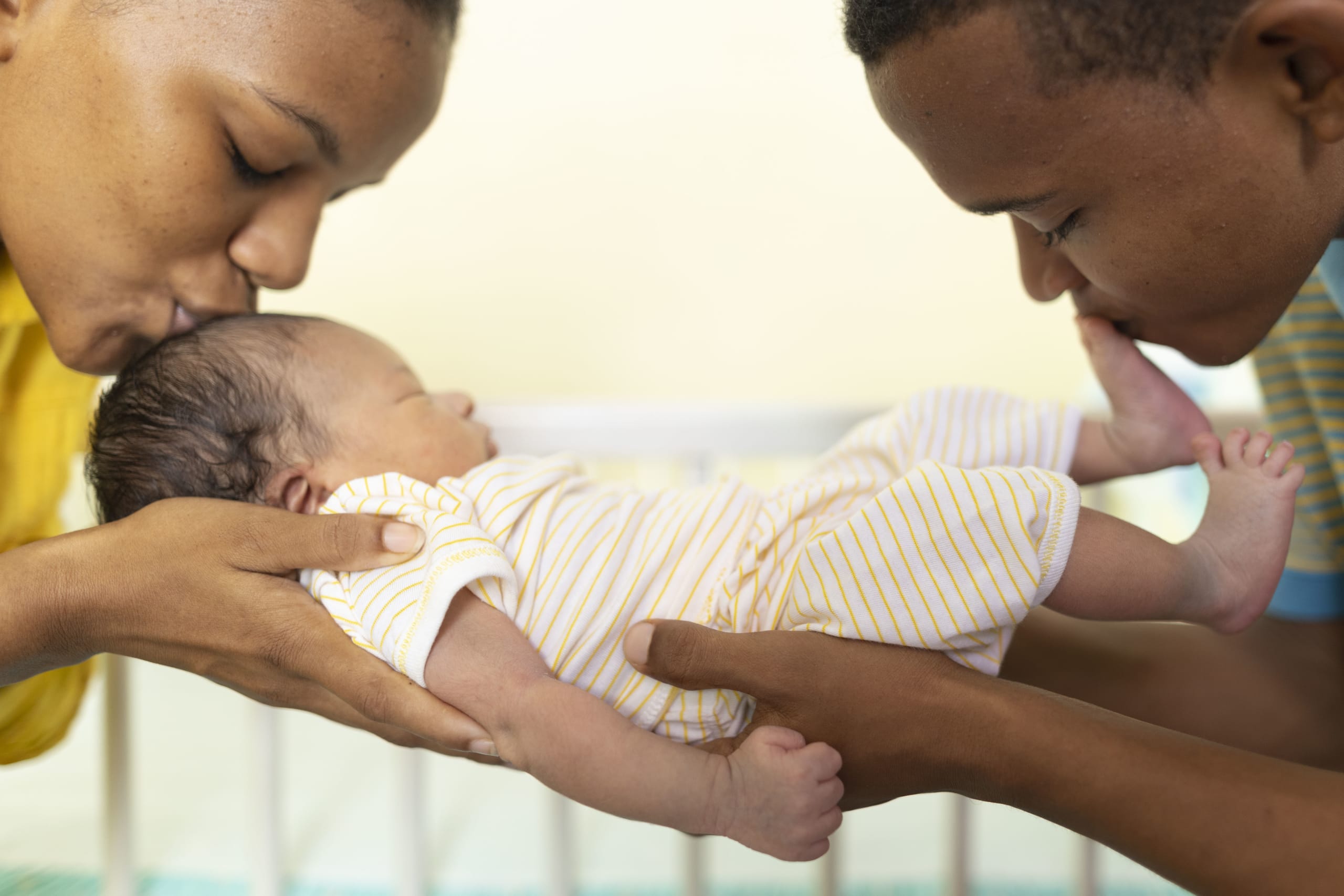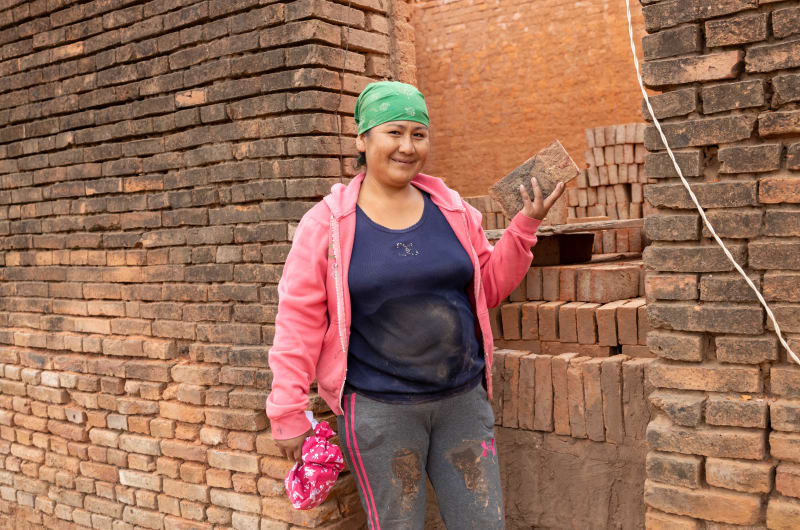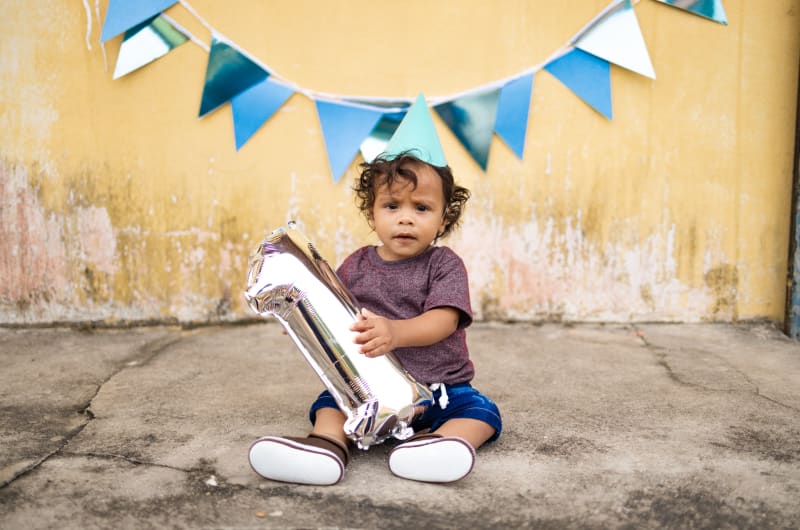Once upon a time. Four words that transport you into someone else’s story. Four words that imply a happy ending is waiting at the end. This unfolding phrase sets the tone for the rest of the story, infusing the possible danger, despair and disaster found within the plot with something powerful: hope.
There’s no denying that the beginning impacts the rest of the story.
Of course, we can’t always control the details—but can we infuse the story with something powerful?
Can we start with hope?
You are invited into the beginning of the story of four babies around the world. Each baby’s story begins with unique circumstances—from brave mothers, fathers, and bereaved caretakers to creative births and crisis interventions. But the common denominator between them all is what answers the most important question…
Yes, we can start the story with hope.
Once upon a time, there was a phone call delivery…
Joy, Bangladesh
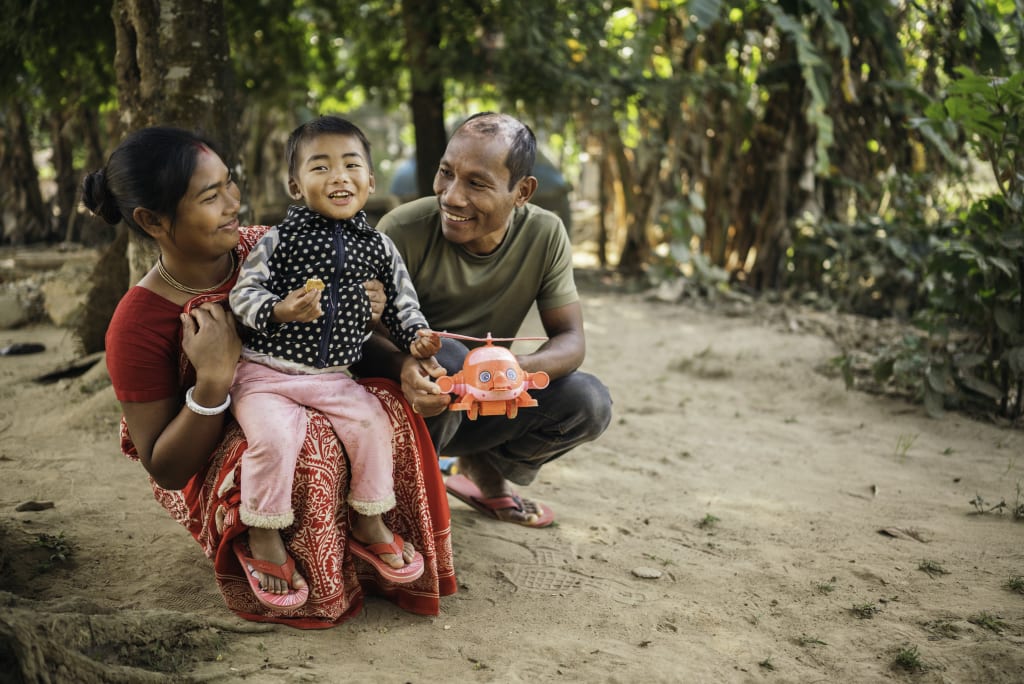
“I don’t know if I can survive this childbirth, Mother!” Kohima gasped.
Kohima was in labour with her first child, but something was wrong—the pain felt alarming. She needed help, but how could she convince her family that she was in danger?
According to the local customs, Kohima returned to her parent’s home to give birth to her first child. Their home is in the jungle, which has limited access to transport. Because of this, communication is very difficult, even over the phone. To make the situation even more delicate, their community is known to have a practice where mothers are to take care of themselves at home birth. The community considers it a social embarrassment to have assisted childbirth.
At the beginning of her pregnancy, Kohima was registered in the Survival program at the local Compassion centre. Here, she received proper nutrition and regular medical attention. She visited the doctor for regular checkups. While the Survival staff are always sensitive to the community’s practices, their highest priority is the safety of the mothers and their babies.
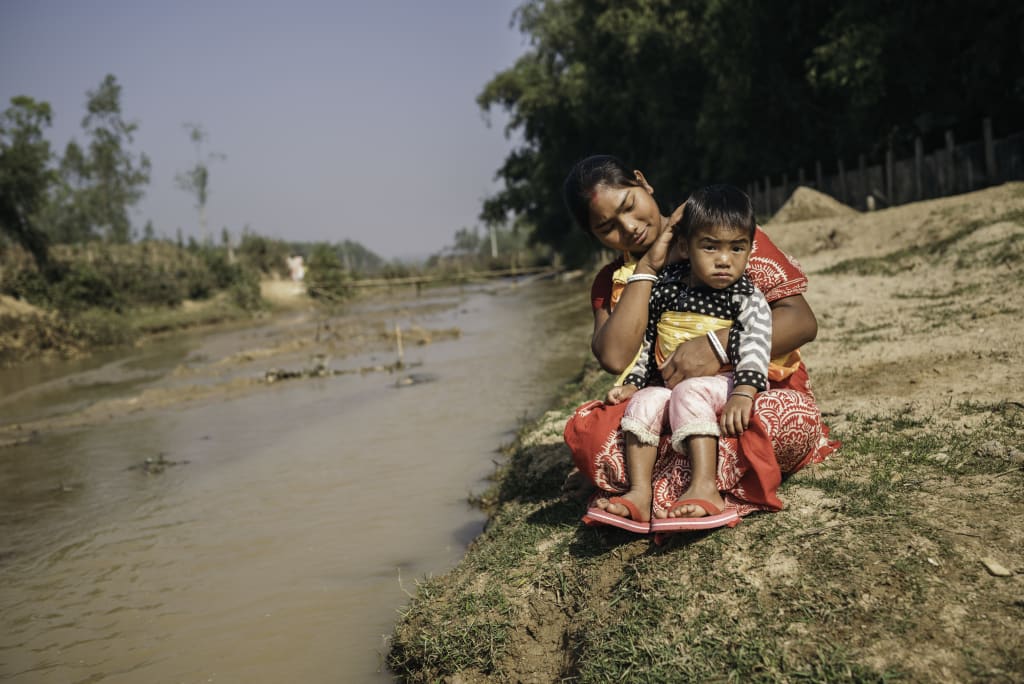
Knowing her strong connection with the centre, Kohima’s mother ran over 10 minutes to find reception to get a call through to Rinika, one of the staff at the Compassion centre. When her phone rang, Rinika picked up and listened to Kohima’s mother, out of breath and panicking, explain that her daughter was in terrible pain and crisis.
Rinika calmly talked Kohima and her mother through the birth, easing their fears and clearing their minds. Kohima gave birth to her beautiful baby boy and named him Joy! Afterwards, the Compassion centre ensured that there was proper medical care for Kohima and her son following the delivery.
“If it wasn’t for Compassion, I think I would have lost my life,” admitted Kohima.
Today, Joy is two years old and growing up healthy. Kohima and her husband, Raghunath, dream about Joy’s future. Their story is full of hope.
Once upon a time, a diagnosis was discovered…
Nelson, Kenya
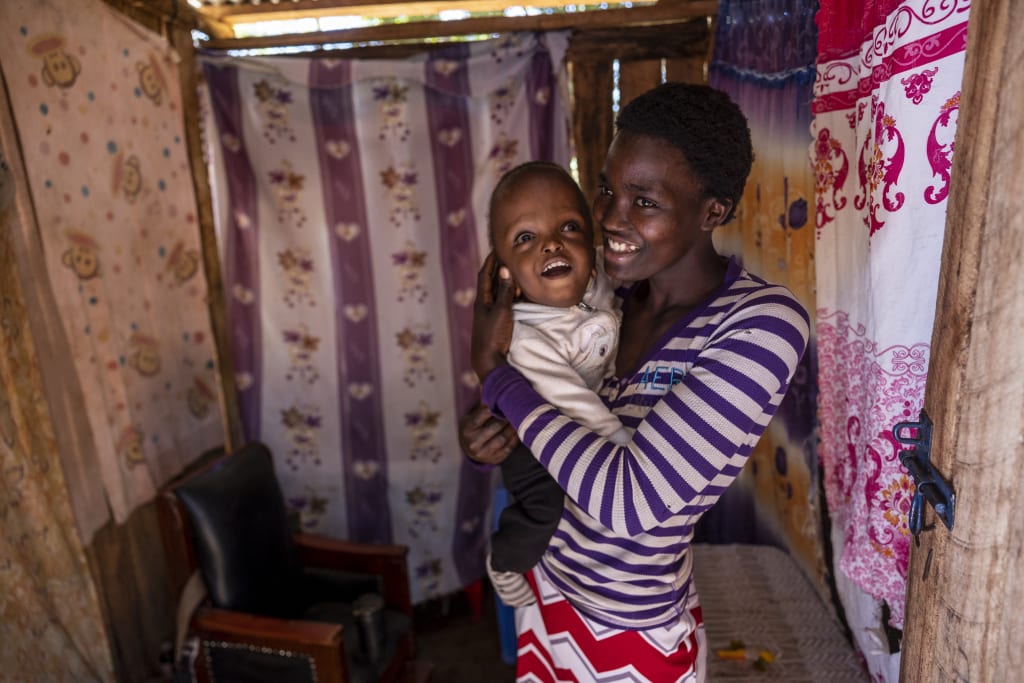
Laughter fills the one-room wooden house as Anita plays with her two-year-old son Nelson. Although he can’t see, Nelson’s eyes follow the sounds his mother is making. When Anita, crouching by his chair, mimics a shaker’s sound, Nelson breaks into a burst of hearty laughter—and Anita can’t help joining in.
Laughter has not always been present in this small home. Unbeknownst to Nelson’s parents, he was born with Congenital Hydrocephalus, a condition where excess cerebral spinal fluid accumulates in the brain during birth.
“We did not know what was happening, and the clinic near our home had no diagnosis,” says Anita.
Neighbours who saw the family’s helplessness advised them to visit the local Compassion centre to see if they could help.
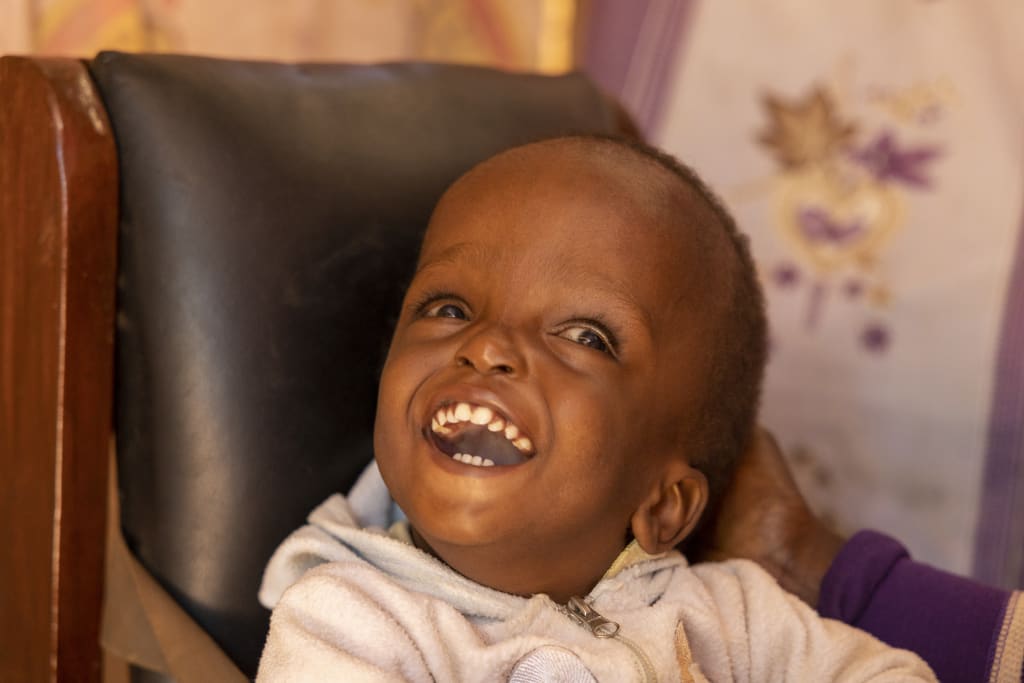
“When Nelson’s mother came with him to the church, there was no way we were turning them back,” says Marylin, a staff member at the centre. “Nelson was severely wasted and had significantly delayed milestones.”
Soon after he was registered in Compassion’s Survival program, Nelson was diagnosed correctly, and the church started supporting his health care. He was able to receive surgery and necessary treatment for his condition and was given nutritional support.
“I have worried a lot about Nelson. He had been given less than a month to live, but by God’s grace and support from Compassion, he is now two years old,” Anita shares.
Nelson is attending occupational therapy and has made tremendous progress. He brings great joy to his family, and now, when they look to the future, their eyes are bright with hope.
Once upon a time, a grieving grandmother found support…
Deinner, Colombia
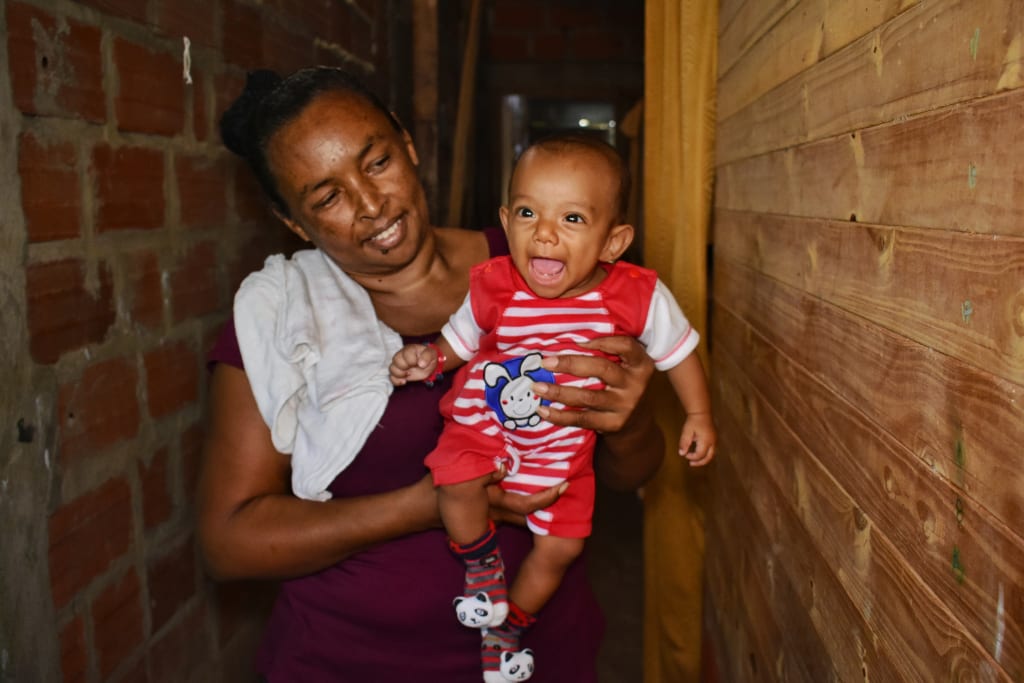
“I remember how happy I was when I saw you for the first time. Despite the pain, there you were: so innocent, so beautiful, reminding me of God’s love.” Deinner’s grandmother, Bridis, reflects as she holds her grandson.
Deinner’s mother, Cindy, was diagnosed with COVID-19 while pregnant and was admitted to the local hospital. Little did the family know she would remain there for two months battling the illness while facing complications in her pregnancy. As her condition worsened, the doctors decided to perform an emergency cesarean section, and Deinner was born at seven months of gestation. He was sent to the neonatal intensive care unit as the doctors expected Cindy to recover.
Sadly, Cindy passed away one day after Deinner was born.
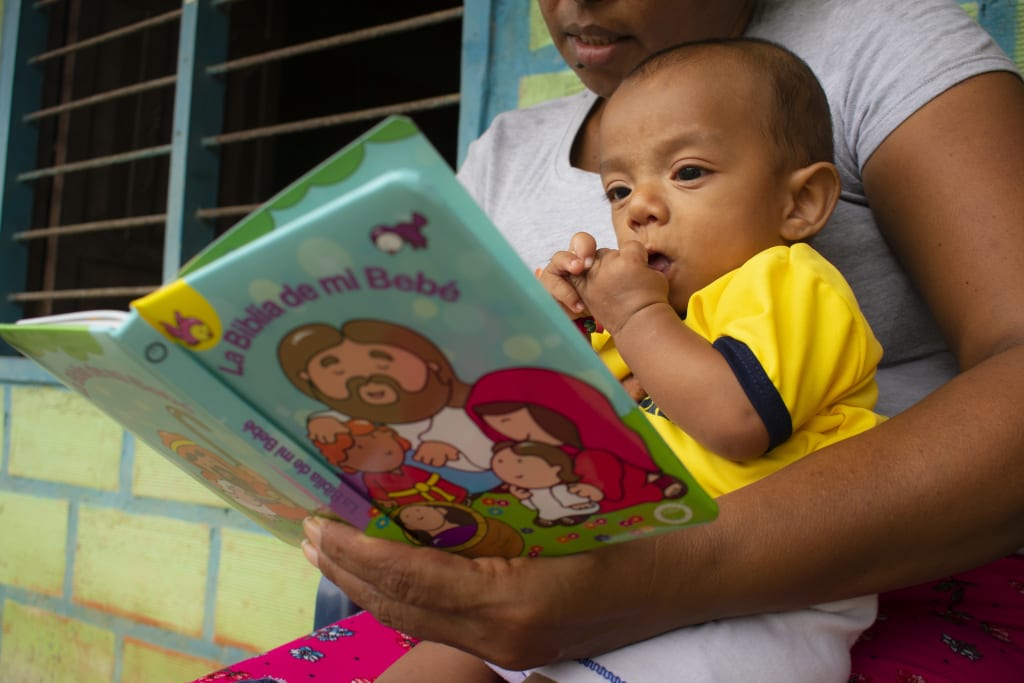
Deinner remained in the hospital, and his father contacted the Compassion centre for help. Together, they provided what was needed to keep him there. After Deinner was discharged from the hospital, the family had to make some difficult decisions which led to Bridis taking Deinner in as his full-time caretaker.
Deinner was then enrolled in Compassion’s Survival program at the local Compassion centre. It has continued to be a great help to his grandparents as they have taken responsibility for this sweet baby boy. Since being a part of the program, the centre has provided the family with food, a bed and an oven so Bridis could run a small business baking bread to help bring in some income. They have also provided emotional support and care to Bridis as the primary caretaker.
Despite the grief and sorrow that came with the loss of Deinner’s mother, Bridis feels that caring for her grandson is nurturing new hope thanks to the support of Compassion’s Survival program.
Once upon a time, there was a baby who finally breathed…
Eyram, Togo
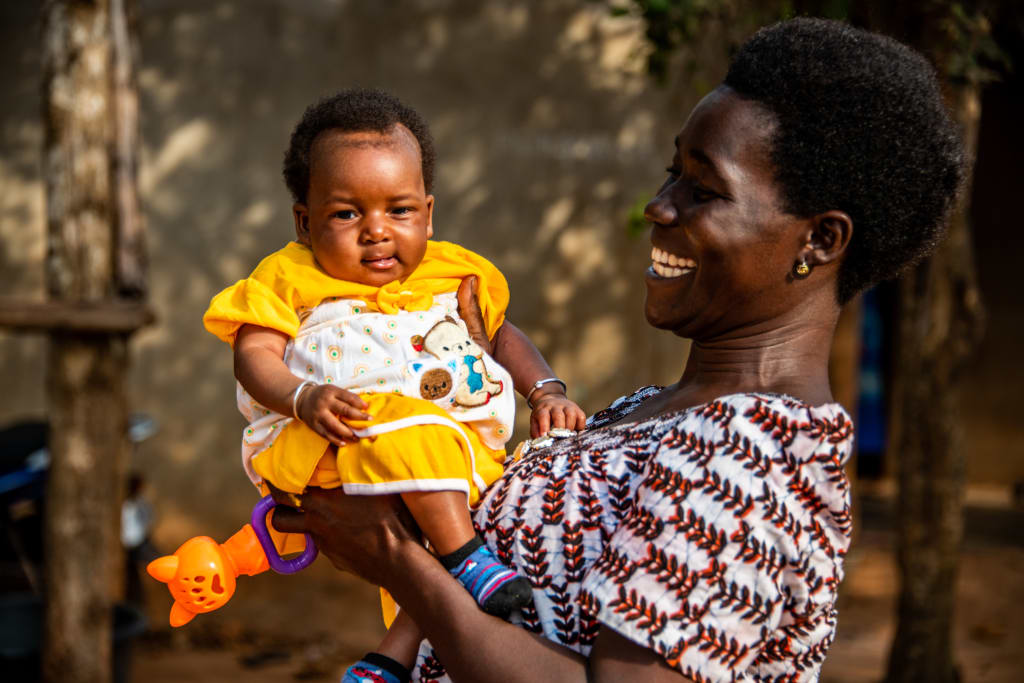
In the labour room, Adjowa pushed again with the last of her energy. Her tiny baby was finally born, but the sudden silence in the room was frightening.
“The baby is not breathing,” the birth attendants declared. Despite their immediate medical attempts to make the newborn react, no cry came out.
“Run her immediately to the main hospital! Madam, we can’t keep you here any longer; your baby is not reacting,” the birth attendant told the exhausted, frightened mother.
“But I don’t have a penny. Who is going to pay for the medical fees?” Adjowa asked with desperation.
Meanwhile, Adjowa tried to gather her strength, waiting for a nurse to tell her what would happen next.
She knew the midwives were not to blame for her financial struggles. The past year had been challenging, to say the least. Her husband Antoine had been injured in a car accident while on duty as a taxi driver, and she had lost her own job. They were evicted and had to move in with Adjowa’s sister. They often did not have enough food to eat every day.
Their situation had gone from difficult to desperate—and now she didn’t know if her baby would survive.
Thankfully, a couple of months earlier, Adjowa’s sister-in-law told her, “I think you should seek assistance at the Compassion centre. I heard they have been helping pregnant women and babies, and children’s lives are very dear to them. I am sure they can help.”
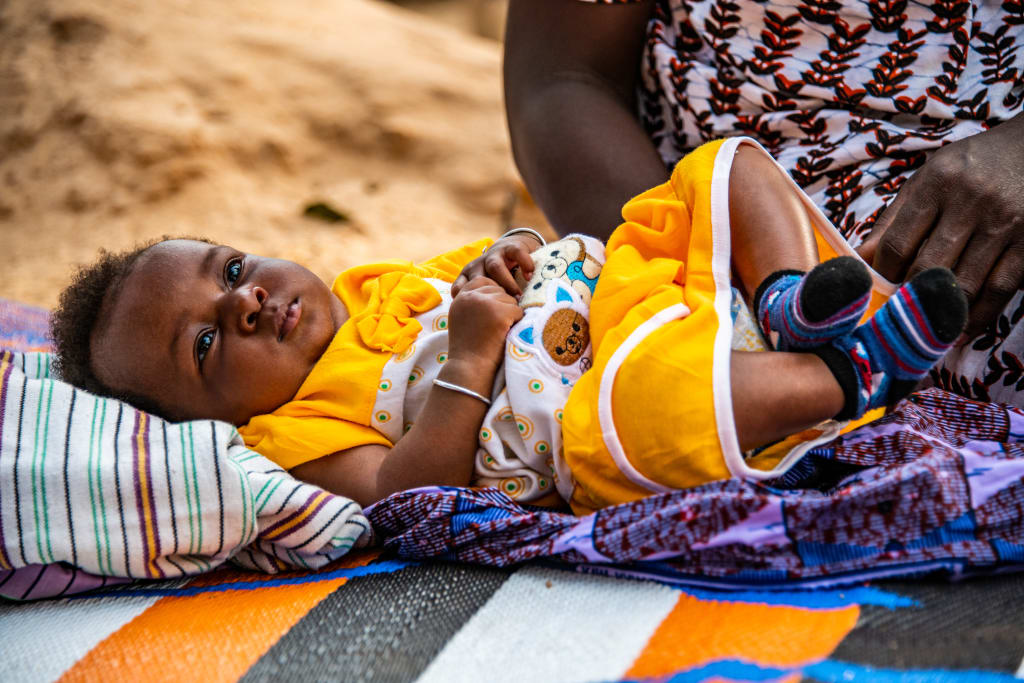
These words gleamed within Adjowa like a light in the dark pit of her heartbreaking situation.
At the first opportunity, Adjowa went to the Compassion centre, and after explaining her condition, she was registered with the centre’s Survival program. “The first support I received was a food kit. I can’t forget about it. For the first time in months, we had meals normally and were not obliged to skip meals for days,” said Adjowa. She also received support for medical care.
Now, in the terrifying silence of her perceived stillborn birth, she faced a fresh wave of anxiety. But the Compassion centre took charge of every expense.
Baby Eyram’s life was saved by the quick treatment she received.
“My daughter and I would not have made it if the Compassion centre had not helped. I am sure I would be dead by this time, and my baby too,” says Adjowa.
When Adjowa cradles her daughter in her arms, she knows she is holding the gift of hope.
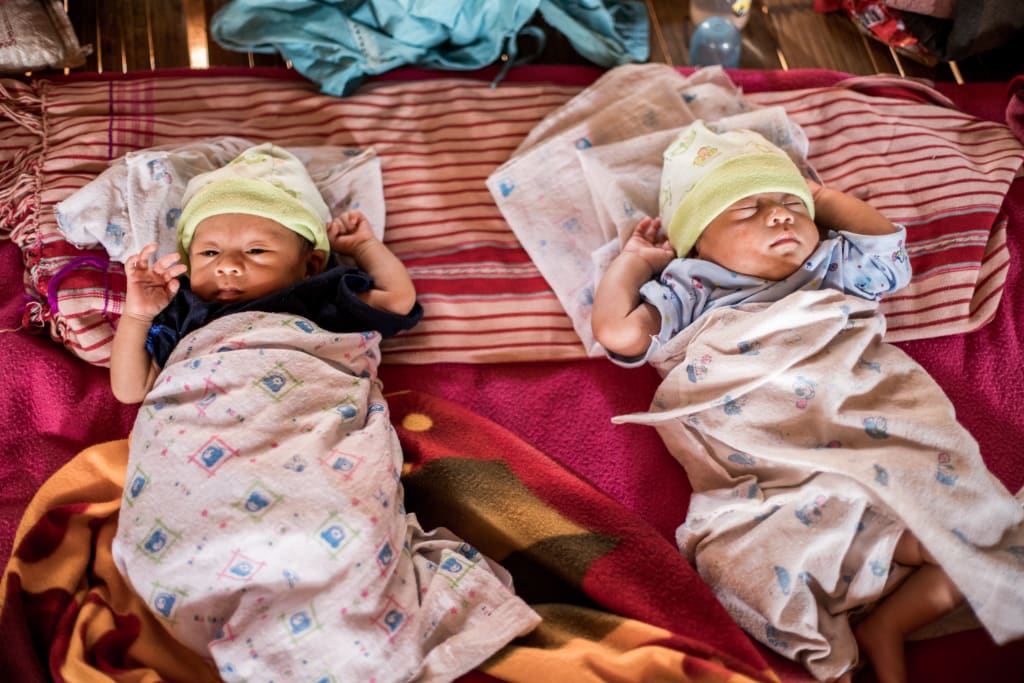
If there is anything that these stories tell us, it’s that every baby is born under different circumstances. Parents living in poverty face unthinkable decisions, unique challenges and deep anxiety as they welcome their new baby into the world. The beginning of the story is critical.
In fact, here are a few statistics that highlight just how important the beginning is:
- Children face the most significant risk of death in their first 28 days. Globally, 2.4 million children died in the first month of life in 2019. (WHO)
- Neonatal conditions are the leading cause of death in low-income countries. (WHO)
- About 295,000 women died during and following pregnancy and childbirth in 2017. The vast majority of these deaths (94%) occurred in low-resource settings, and most could have been prevented. (WHO)
But our collective compassion can help write the first page of their story in a way that infuses hope into every page. Beginnings do matter.
Compassion can help children thrive. Let’s start at the beginning.
Let’s start with hope.
Field reporting and photos by J. Sangma, Kevin Ouma, Lina Marcela Alarcón Molina and Akpene Gabriella Samaty.
Feature photo by Yrahisa Mateo.

